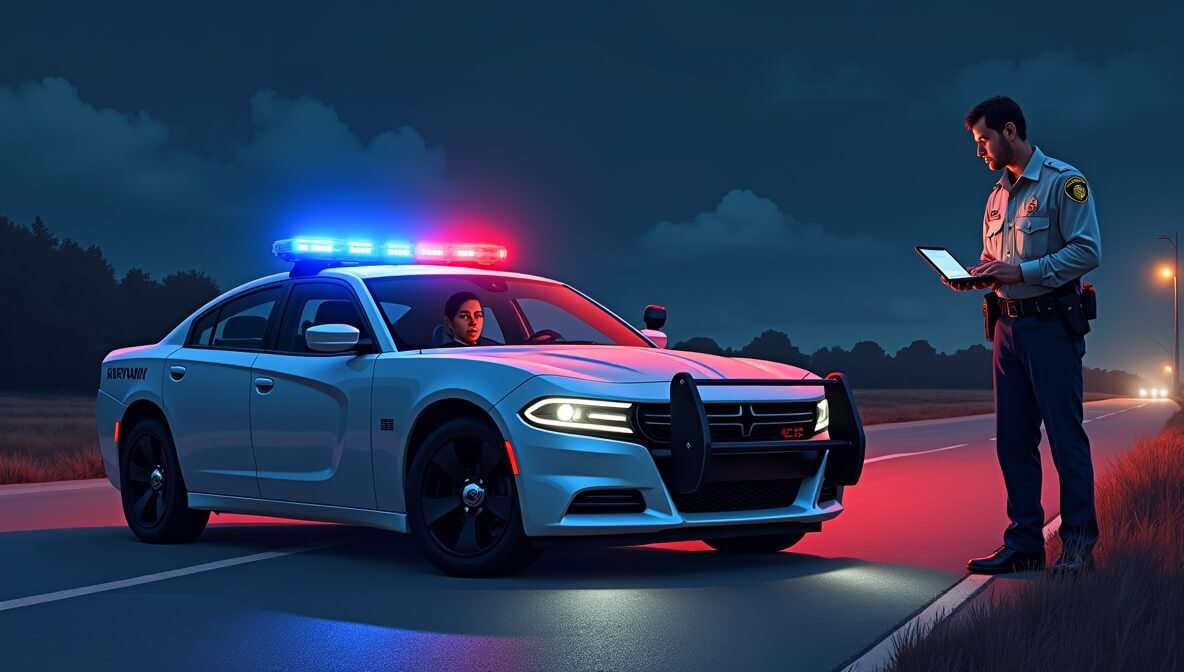Being stopped by the police can be an overwhelming experience. However, understanding your rights can help you navigate the situation and protect yourself from potential self-incrimination. Here’s a breakdown of your rights when interacting with law enforcement.
1. Stay Calm and Identify Yourself
When the police approach, it's important to stay calm and composed. Here's what you should do:
- Provide basic information: If asked, you must provide your name and a valid ID (driver’s license, state ID, or passport, depending on local laws).
- Be polite and respectful: While you are not required to answer all questions, being polite can help prevent escalation. Avoid making sudden movements, keep your hands visible, and remain cooperative to avoid appearing suspicious.
- Tip: In some states, you may be required to provide your name upon request, but you do not have to answer questions about your destination, purpose, or activities unless the officer has a valid reason to question you.
2. Right to Remain Silent
Under the Fifth Amendment, you have the constitutional right to remain silent, which means you are not required to answer any questions beyond identifying yourself. If the police ask you questions about your actions or whereabouts, you can invoke your right to remain silent.
- How to invoke your right: Politely inform the officer by saying something like: “I am exercising my right to remain silent.”
- Important to know: You do not need to answer questions about where you’re going, what you’re doing, or any other personal information that could incriminate you.
- Tip: It’s always best to remain silent until you’ve consulted with an attorney, especially if you believe you may be under suspicion or involved in a criminal investigation.
For further details on what to do if you're arrested, see A Guide to Fee Structures for Criminal Defense Cases to understand how defense counsel can guide you right from the start.
3. Protection Against Unlawful Searches
Your rights under the Fourth Amendment protect you from unreasonable searches and seizures. Here's what to know:
- Car stops: In most cases, police officers need either consent, probable cause, or a warrant to search your vehicle. You can refuse consent to a search, but be aware that refusal may lead to other actions by the officer. "I do not consent to a search."
- Pat-downs and searches: If an officer suspects that you are carrying a weapon or illegal items, they can perform a limited frisk (a pat-down of your outer clothing). However, the search should not go beyond what is necessary to ensure there are no weapons.
- Tip: Always ask, “Am I being detained, or am I free to go?” If you're not being detained, you have the right to leave. If you are being detained, the officer should explain why.
For further information on challenging evidence in criminal cases, see How a Lawyer Can Challenge Evidence in a Criminal Case.
4. Ask if You’re Free to Leave
If you are being stopped or questioned, you have the right to know if you are free to go.
- Ask the officer: “Am I free to leave?”
- If the officer says yes, you are not under arrest and are free to walk away. If the officer says no, they must explain why you are being detained and under what circumstances.
- Important: If the officer does not have a valid reason to detain you or suspect you of committing a crime, they may not legally keep you from leaving.
5. Right to an Attorney
If you are arrested, you have the right to remain silent until you speak to a lawyer. This right applies both during and after your arrest.
- Before questioning: You can request an attorney at any point during police questioning. Once you invoke this right, questioning should cease until your attorney is present.
- While arrested: If you are in custody, you must be informed of your right to an attorney. Always ask for a lawyer if you are unsure whether you are being detained or arrested.
For guidance on how to prepare for questioning, see A Lawyer’s Guide to Preparing for a Police Interrogation.
6. Record the Encounter if Safe
In most states, you have the right to record police interactions as long as you do not interfere with their duties. This is especially important in case there is a dispute about what happened during the stop.
- Recording tips:
- Do not physically touch the officer or their equipment while recording.
- Be clear and peaceful about your intention to record, if needed, to avoid escalating the situation.
- Tip: Be sure to check your state's specific laws regarding recording police interactions. Some states have unique laws on recording conversations, and you should know your rights before you start filming.
For additional external guidance, the ACLU’s Know Your Rights resource offers a comprehensive checklist of your rights during police encounters.
Key Takeaway
While a police stop can be intimidating, remaining calm, polite, and aware of your rights can protect you and avoid unnecessary conflict. If you are arrested, always invoke your right to remain silent and contact a criminal defense attorney immediately. A lawyer can ensure your rights are protected throughout the legal process.
